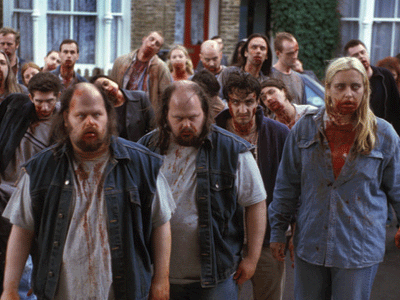Tiredness and fatigue is an increasing epidemic causing workers to suffer, stress to rocket which can effect productivity. Marcus de Guingand looks at the growing cult of Britain's “Zombie Nation.”
The main cause of tiredness and fatigue is insufficient good quality sleep. Sleep, together with cardio-vascular fitness and nutrition form the three key pillars of our health. Sufficient good quality sleep is vital for keeping us healthy and productive and sleep plays a key role in preparing body and mind for an alert, productive, psychologically and physiologically healthy tomorrow.
A recent report from the Corporate Fatigue Solutions company MetroNaps looked at the extent and impact of fatigue in a sample population at The Vitality Show, where 209 people completed a fatigue assessment and the composite results make for interesting reading.
The results appear to suggest that messages and corporate programmes around exercise, nutrition and smoking cessation have been absorbed. Only 5% of the group surveyed smoked, 67% exercised at least a few times a week and only 13% of the group were classed as obese (BMI).
It also showed that the median weekday sleep duration was an adequate seven hours and 15 minutes with 64% of people achieving in excess of seven hours of sleep a night. However despite the seemingly adequate levels of sleep:
- 76% of respondents do not feel as though they achieve enough sleep
- 79% experience fatigue during the working day at least several times each month
- For 54% fatigue affects their work at least several times each month; and
- 34% have felt drowsy whilst driving at least once a month over the last year
This suggests that it is the quality of sleep that is the main issue. From the report 47% cited personal worries as a barrier to sufficient sleep, 38% work worries and 37% felt they didn’t have enough time for sleep. Other significant causes of poor sleep were being woken by a partner (23%), needing the bathroom (23%), shift work patterns (11%) and children (10%).
The negative effects
The impact of poor sleep has a profound negative effect on health, safety and productivity. Research by UCL and Warwick showed that sleeping for five hours a night doubles the risk of dying of heart disease versus seven hour sleepers. Sleeping less than six hours a night increases the risk of diabetes by 23% versus seven to eight hour sleepers. This rises to 50% in five hour sleepers and 73% in four hour sleepers (US National Health & Examination Survey). Sleeping for less than 5 hours a nigh also increases the risk of diabetes by two and a half times versus seven to eight hour sleepers (Boston University).
Sleeping for five hours a night for a week impairs performance to the same extent as being legally drunk (Harvard Business Review) and over the course of two weeks those restricted to six hours of sleep made 11 times more errors than well rested. This rose to 14 times in four hour sleepers whilst the eight hour control group maintained consistent performance (Pennsylvania University).
In 2008 the Journal of Workplace Health Management examined 300,000 pharmacy claims, 120,000 medical claims and 15,000 employees health-related productivity costs. Fatigue was the greatest productivity cost. Including pharmacy and medical claims fatigue was the third greatest cost (depression second) and sleeping problems fifth.
So whilst many organisations have undertaken excellent initiatives around exercise and nutrition the final – as yet under-addressed area - is sleep. Other major factors that are going to impact on tiredness and fatigue include sleeping disorders, shift work schedules and staff with young children.
What can be done?
So what is the answer? Firstly to address the problem an organisation needs to understand the extent of the problem. Assessing the staff group will help indicate whether tiredness and fatigue is an issue and the extent of the issue. Thereafter if it is an issue training can be undertaken. With sleep a little knowledge goes a long way. By giving staff an adequate level of knowledge they can then choose to make small changes that can have a significant positive impact.
For certain groups where tiredness and fatigue are inevitable implementing fatigue reduction and control strategies can make a positive difference. This could be in the form of flexible time, matching shift work to individual chronotypes, provision of on-site rest facilities or other interventions.
The one certainty is that tiredness and fatigue is a significant issue for UK organisations. Neglecting it will lead to lower productivity, poorer health, lower engagement and a less safe workplace. Tackling it will improve all the above metrics as well as work-life balance (as people have more energy to make the contributions required of them in all aspects of their life).
Marcus de Guingand is Managing Director, MetroNaps UK









